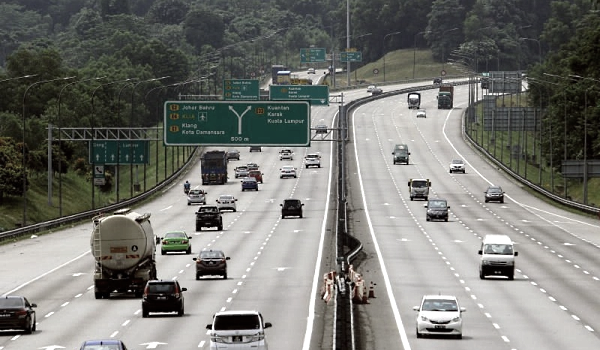Due to financial constraints, the government can only complete public engineering works by way of BOT.
Prime minister Datuk Seri Ismail Sabri Yaakob announced on Monday that the government agreed to restructure and take over four highway concessionaires in Klang Valley – KESAS, LDP, Sprint and SMART – through a company called Amanat Lebuhraya Rakyat Berhad (ALR).
Tolls on these four highways will not be increased until the end of the concession. To compensate the concessionaires, the government will allow the concessions of three highways (except SMART) to be extended. For example, the concession for KESAS, supposed to end next August, will now be extended to 2028.
The PM said the restructuring has saved the government RM4.3 billion. He also said the restructuring goes well with the government’s principle of not further burdening the rakyat by not increasing the tolls, adding that the RM4.3 billion saving could be used on other infrastructure developments.
Back in 2019, then Pakatan Harapan government proposed to acquire the concessions of four highways from Gamuda for RM6.2 billion, but later changed its mind because the government should instead rationalize highway toll rates instead of spending RM6.2 billion which would have to be borne by taxpayers in 12 other states.
RM6.2 billion is not a small amount, and each year Malaysia only has around RM70 billion from the annual budgets that could be used on infrastructure development and repayment of foreign loan interest. As such, spending RM6.2 billion to buy back these four highways is never a good idea at all, not to mention dozens of other highways constructed under build-operate-transfer (BOT) contracts elsewhere in the country.
The BOT model is meant to encourage the participation of private investors (or international consortia) in public infrastructure projects which are planned by the government but undertaken by private companies through open tendering or otherwise.
Upon completion of a BOT project, the government will surrender to the concessionaire the right to operate and enjoy monopolized benefits derived from the operation of such project for a specific period of time as per the agreement. At the end of the concession, the right to operate and asset will all be transferred back to the government.

To the government, the biggest advantage of BOT is to transfer the financial risks to private entities. Under the BOT model, the government only requires very minimum financial input to complete a major infrastructure project, thus lessening its fiscal burden and allowing it to channel the limited public resources elsewhere.
BOT is not without its shortcomings, but so long as the whole bidding process is done openly and transparently, corruption and abuse of power could be avoided while quality of construction work assured.
However, lack of close government supervision might result in profit-oriented BOT investors ignoring their social obligations, thus compromised service and maintenance quality.
Senior works minister Fadillah Yusof has explained that through the restructuring exercise, there will not be any more profit-oriented shareholders in future, while existing shareholders such as EPF, KWAP, PNB and Lembaga Tabung Haji can get their investment returns faster.
He also said the government cannot change the rights and obligations in existing contracts as this will have a negative impact on future foreign investors and kill their interest in Malaysian government projects, adding that the restructuring goes well with the government’s policy of privatizing public infrastructure projects, and therefore private companies will continue to be allowed to operate and maintain the country’s highways and bridges.
As mentioned earlier, due to financial constraints, the government can only complete public engineering works by way of BOT. The thing is, the government has yet to possess the ownership of these massive projects at this very moment, and as such ordinary people like us will have to continue paying tolls to use the highways.
ADVERTISEMENT
ADVERTISEMENT



































